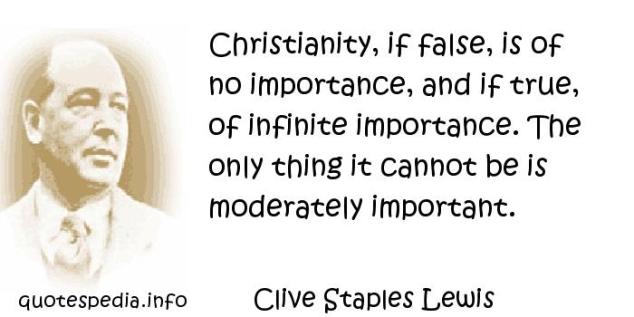When Church Leaders are Led to Leave
If you have gone to a church of your own volition for any length of time you cannot help but have that church become a part of you. You likely chose that church for one or more reasons, and you have grown to love the people, the teaching, the music, the fellowship, the various ministries, etc. I know I feel this way about my church for sure. If I didn’t I wouldn’t call it my church home. One thing we can sometimes forget is that the leaders in the church have not sworn a blood oath to remain at your church, and your church only. Things happen. They might start families. They might grow in a way that leads them in a new direction. They might find themselves with a decision to make based on what God is calling them to do, and one of the choices might include moving to a different church.
Now if you have never been a part of a church of your choosing for any period of time you might think, “What’s the big deal”? Trust me. This losing a leader in the church can be a very big deal to many members of a congregation. This type of transition surfaces all sorts of emotions. Sometime those who remain at the church may field betrayed, disappointed, angry, saddened, concerned, confused, and everything in between. These emotions, when not handled prayerfully, can lead to a number of negative reactions with the most common being gossip, and even slander. Sounds pretty unbiblical, right? Well, it is. This is why I thought it important to remember three important points if you experience a leader leaving your church to join another church…
1) It’s Not About You
Notice some of the emotions I listed that church members might feel when a leader leaves to go to another church. Do you see a common theme? If you guessed pride or selfishness then you guessed correctly. We are called to go. Go to the lost. Heal the sick. Give freely what was given to us. Take a look at Matthew 10:5-15:
5 These twelve Jesus sent out, instructing them, Go nowhere among the Gentiles and enter no town of the Samaritans, 6 but go rather to the lost sheep of the house of Israel. 7 And proclaim as you go, saying, The kingdom of heaven is at hand. 8 Heal the sick, raise the dead, cleanse lepers, cast out demons. You received without paying; give without pay. 9 Acquire no gold nor silver nor copper for your belts, 10 no bag for your journey, nor two tunics nor sandals nor a staff, for the laborer deserves his food. 11 And whatever town or village you enter, find out who is worthy in it and stay there until you depart. 12 As you enter the house, greet it. 13 And if the house is worthy, let your peace come upon it, but if it is not worthy, let your peace return to you. 14 And if anyone will not receive you or listen to your words, shake off the dust from your feet when you leave that house or town. 15 Truly, I say to you, it will be more bearable on the day of judgment for the land of Sodom and Gomorrah than for that town.
If you are feeling some of the emotions I listed above I understand, but prayerfully ask are you more concerned about what is going on in your church? Or should you be spending that energy praying that the leader that is moving to a different church reaches lost people in a staggering way, and has a tremendously fruitful ministry that glorifies God in the highest? Energy spent in unrighteous anger is energy spent with frustrating results. Energy spent in broken-hearted prayer for the lost is energy spent chasing after that which God desires. Now that is energy well spent.
So remember, it is not about you. It is about reaching lost people in a way that glorifies God.
2) The Church is Not the Building
It is hard not to be protective of your church. When you do church right you grow such a deep sense of connection with both the place and the people. So when something seems to threaten either of those things it is easy to feel like it is time to fight back. But what is the church really? Is it the place? The building? Or is it something more? 1 Corinthians 12:13 provides us with a foundation of understanding.
13 For in one Spirit we were all baptized into one body—Jews or Greeks, slaves or free—and all were made to drink of one Spirit.
We are all baptized into one body. That sounds like unity to me, but I don’t see any mention of a building or a place. Paul gives us a deeper understanding still when he writes of what God did for Christ in Ephesians 1:22-23.
22 And he put all things under his feet and gave him as head over all things to the church, 23 which is his body, the fullness of him who fills all in all.
So we are all baptized into one body, and that body is the church. So what does that have to do with a leader leaving to go to another church? Here is the thing. That leader is not truly going to another church. He or she is still part of the body of Christ, which is to say he or she is still part of the same (Big “C”) Church that you are a part of. Same Church, different address. In this way we are called to encourage each other. Consider Hebrews 10:23-24.
23 Let us hold fast the confession of our hope without wavering, for he who promised is faithful. 24 And let us consider how to stir up one another to love and good works, 25 not neglecting to meet together, as is the habit of some, but encouraging one another, and all the more as you see the Day drawing near.
Should we be encouraging that leader? Absolutely! Can we still stir each other (that leader included) up to love and good works? Of course! Can we even continue to meet together with that leader? Why not? The church leader was not hit by a bus. There is no need to act like you can never possibly contact this person again. This is just a change of address.
3) God is Sovereign
God’s plan is not always your plan. In fact, I find more often than not God has something much better than I could have anticipated. There is something tremendously comforting in knowing that God has a plan, and that His plan will come to pass. We see support for this in Isaiah 46:8-11.
8 Remember this and stand firm,
recall it to mind, you transgressors,
9 remember the former things of old;
for I am God, and there is no other;
I am God, and there is none like me,
10 declaring the end from the beginning
and from ancient times things not yet done,
saying, My counsel shall stand,
and I will accomplish all my purpose,
11 calling a bird of prey from the east,
the man of my counsel from a far country.
I have spoken, and I will bring it to pass;
I have purposed, and I will do it.
God declares the end from the beginning. He shall accomplish His purpose. So, if a leader leaves a church to go to another church you better believe it is part of God’s plan. How do I know that? Because if it was not part of God’s plan it would not have happened. Read that last sentence again, and let it sink in. This is what it means for God to be sovereign. The frustrating part is facing the unknown. What is going to happen after the leader leaves? Who will fill that spot? Will he or she do a good job? Why not ask what you can do to help fill the gap in the interim. Why not just trust in God’s plan? This shouldn’t be a stretch for a believer. After all we are speaking of the omnipotent, omniscient, omnipresent, omni-benevolent creator of everything. Chances are His plan is pretty solid. You’re plan… not so much.
Lost and Found
When a church leader leaves one church to go to another for reasons that were fueled by thoughtful prayer and biblical consideration it is not up to us as followers of Christ to condemn that person, and it is certainly not up to us to speak ill of the person or the church he or she is moving to. It is up to us to encourage, to pray, to continue serving. We need to take the focus off of ourselves, and place it squarely on the things of God. We need to pray that the church leader will go after the lost with Christ-fueled vigor. And we need to do everything we can to support our church through the transition, and to support whomever fills that position. We can take heart in knowing that God has placed that person there with a purpose.






















 Lately I have been thinking about Calvinism – what it means, whether it makes sense, and how it relates to Hobbes (OK, just kidding about the Hobbes part). According to
Lately I have been thinking about Calvinism – what it means, whether it makes sense, and how it relates to Hobbes (OK, just kidding about the Hobbes part). According to 











